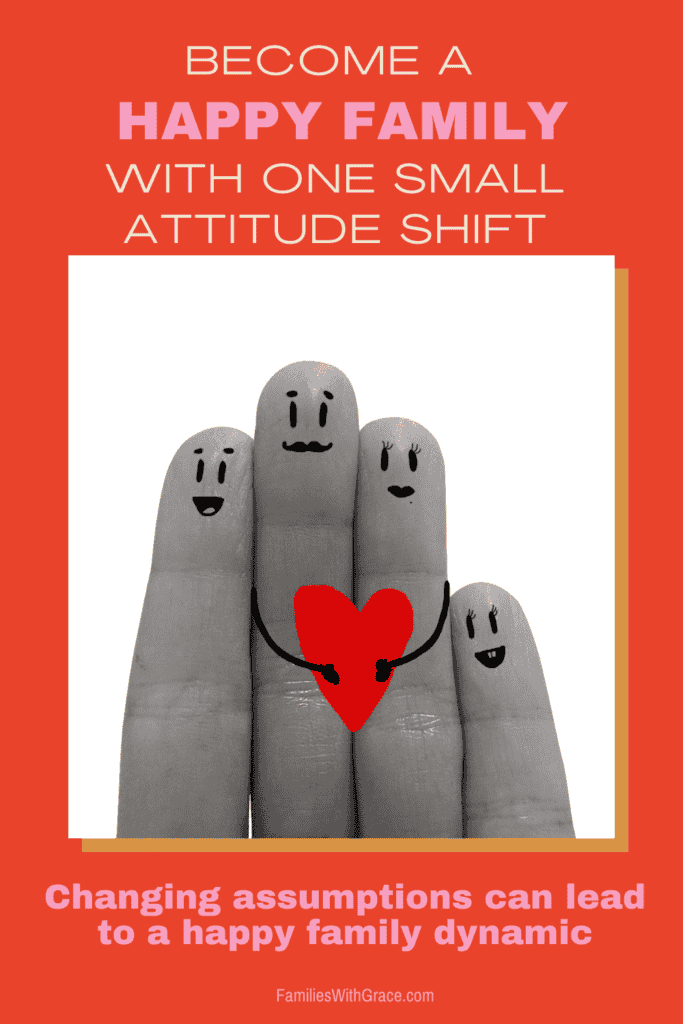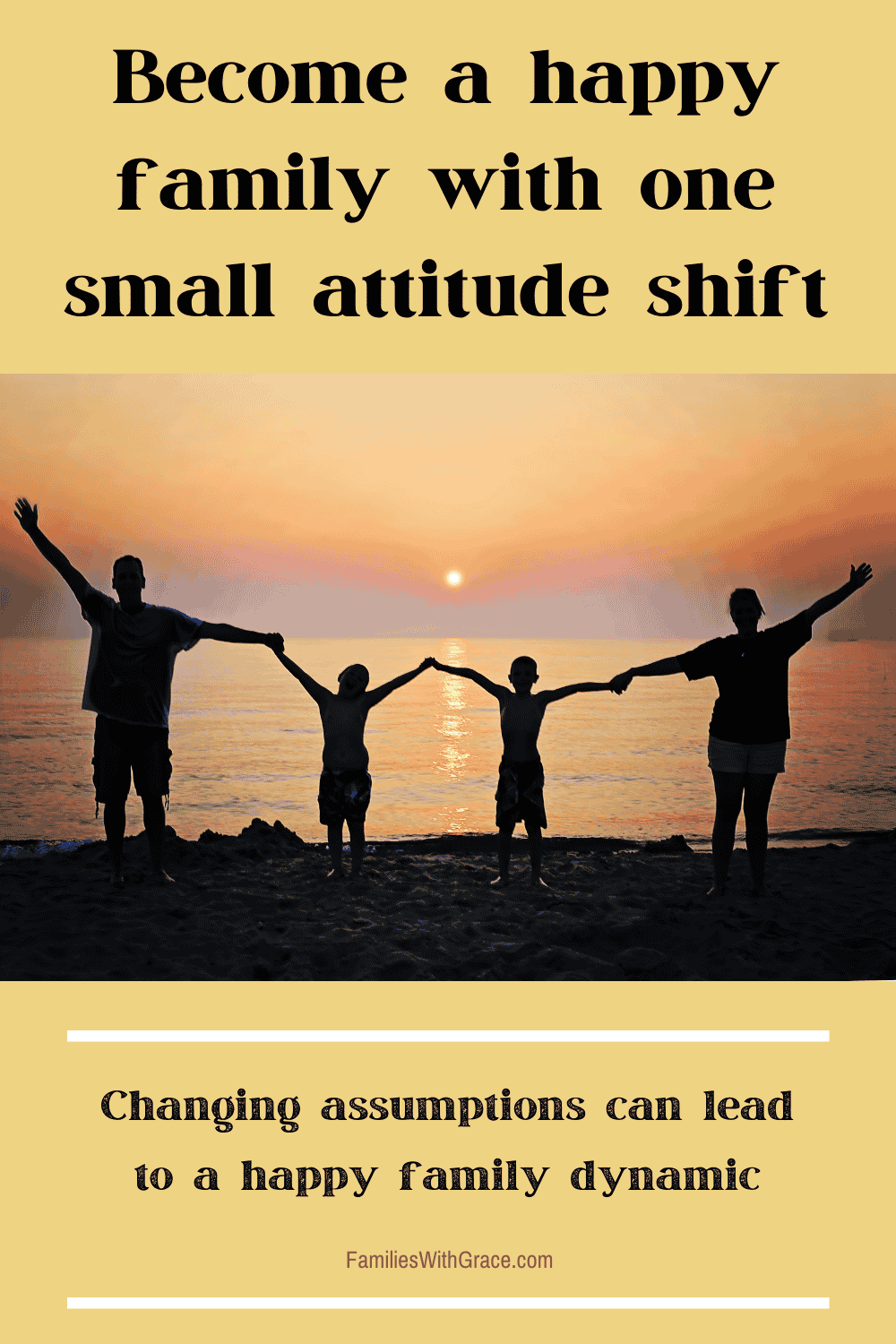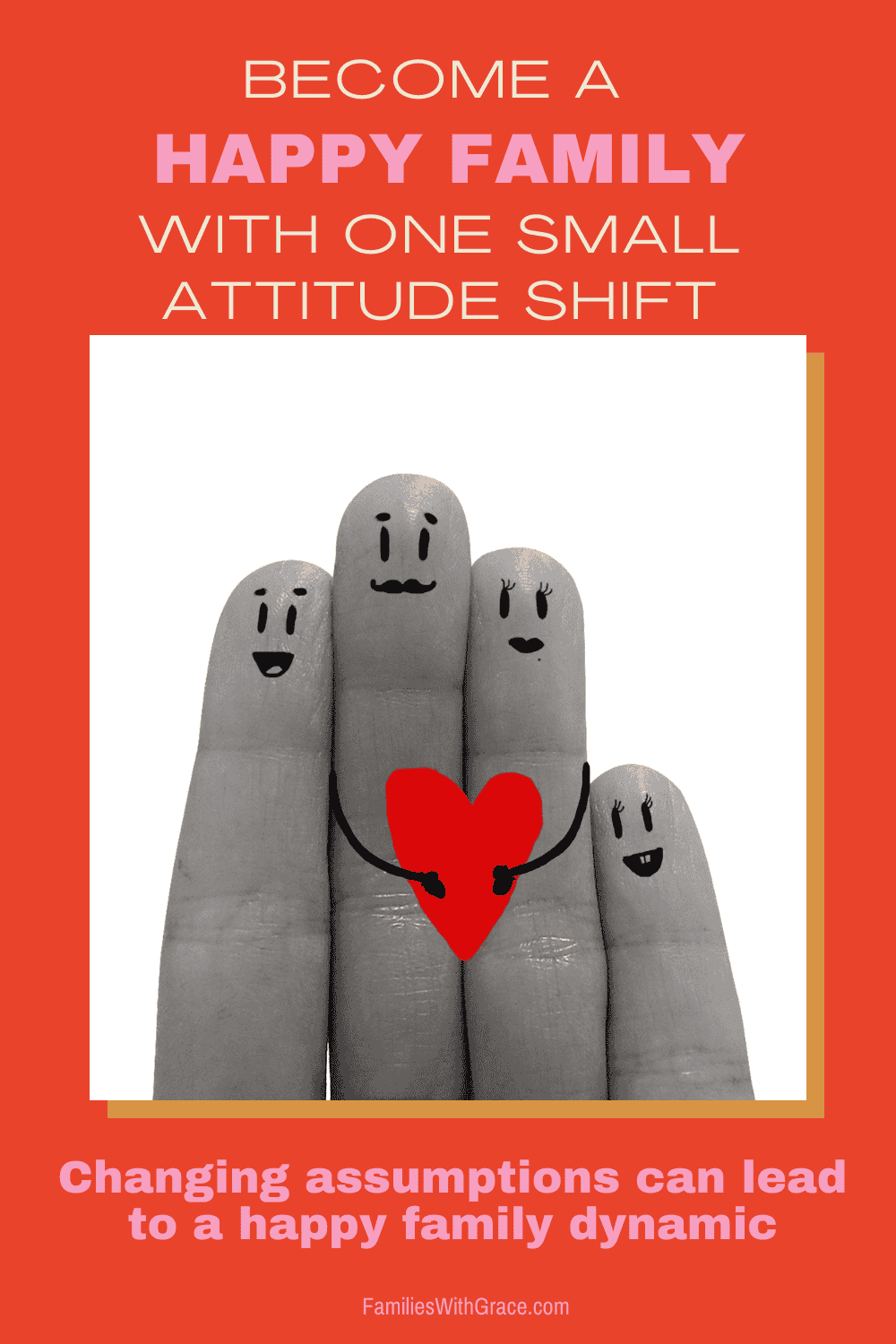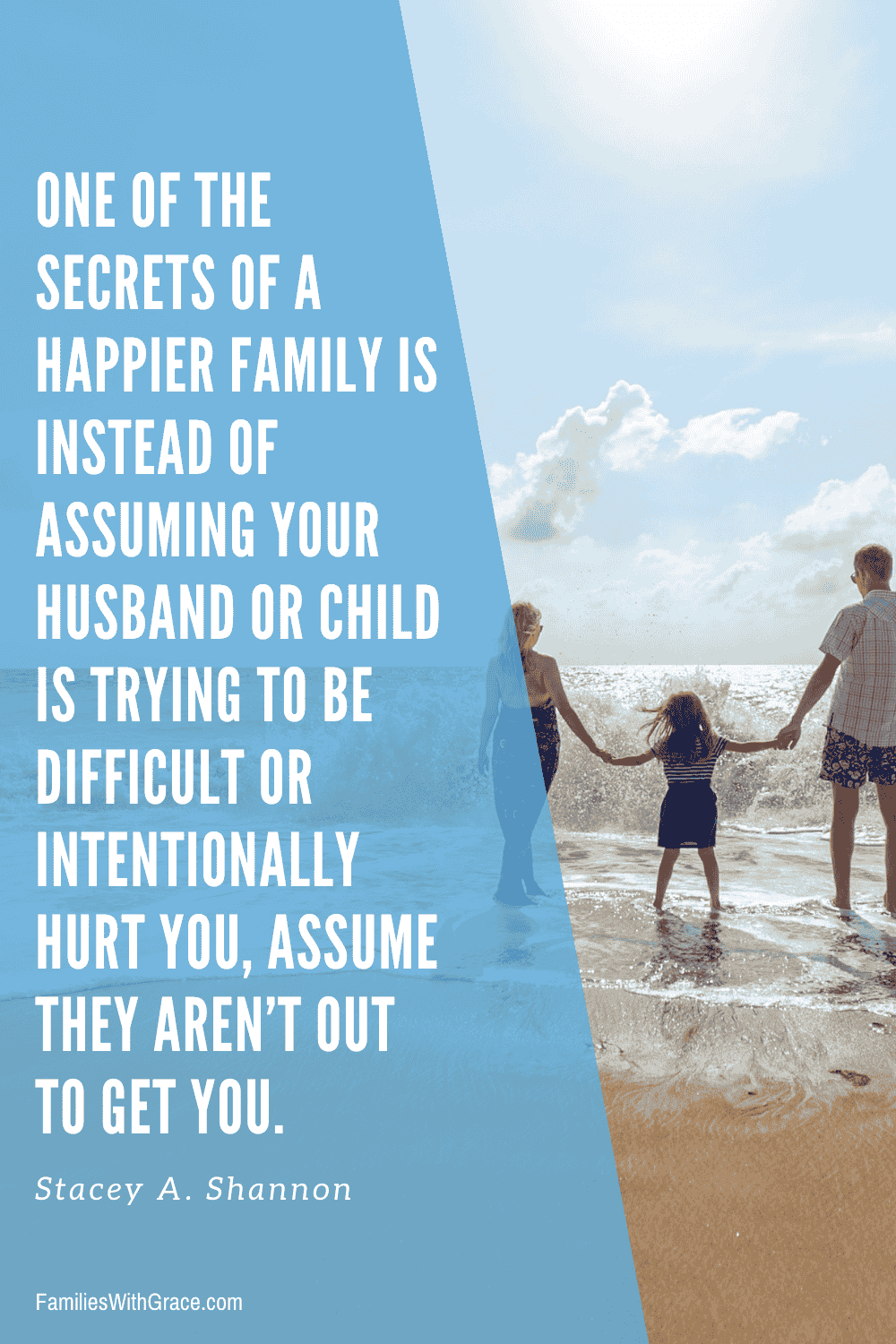Changing assumptions can lead to a happy family dynamic
One of the things I want most as a mom is to have a happy family. I want us to have a good relationship with each other and get along.
Yet, the truth is that nobody gets along all of the time. We get short with each other. My kids argue sometimes. My husband and I can get cranky with each other.

One of the biggest things that can trip us up in relationships is making assumptions about the other person or people. We’ve found a trick to help make those assumptions positive instead of negative. And it makes a big difference in how we treat each other.
Negative assumptions
We may not even realize it, but we can make negative assumptions about other people quickly and easily. In fact, we are more inclined to make negative assumptions about someone than positive ones.
When someone cuts us off in traffic, we may not consciously think, “That guy is just trying to make my drive more difficult!” But we react that way. We get angry and offended.
We do the same thing within our families and it can result in anything but a happy family. When your husband does the laundry then forgets to get it out of the dryer, we don’t consciously think, “He’s trying to make my life harder. He knows I’m busy!” But we react that way. We get upset with him. Our attitude shifts negatively and soon everyone in the family feels the effect of that negative assumption.
The root of negative assumptions
When it comes down to it, the root of negative assumptions is selfishness. Sometimes we are so caught up in ourselves and what we have going on that we subconsciously think the world revolves around us.
Of course most people would never admit to feeling that way at least sometimes, yet it can be how we act. What we are really feeling with our frustration at the guy who cut us off in traffic or the husband who didn’t complete a chore is that they are personally affecting us. And, gosh darn it, we deserve better treatment!
So many issues in relationships come down to the root of selfishness, because we can struggle to get over ourselves and think of others. God is clear in His Word that we are to think of others before ourselves and not do things out of selfish intent (Philippians 2:3-4). He knows we can’t have happy relationships or have a happy family if we are too focused on only ourselves.
Changing to positive assumptions
Making the shift to positive assumptions isn’t as difficult as you might think. For us, it started in our marriage before we had children. Since then, it has grown and expanded. We’ve put it into practice and gotten better at it so that now it’s our first reaction 90% of the time.
Instead of assuming that the other person is trying to be difficult or intentionally hurt you, assume they aren’t out to get you. What you really do is give them grace.
In the laundry example, instead of assuming my husband is trying to get out of folding the laundry, make my life harder or couldn’t care less about taking care of our family’s needs, I ask nicely. I know that most likely, he just completely forgot. Maybe we can fold the laundry together or he just has a friendly reminder to do so.
It sounds like such a small shift, but it makes a big difference in our relationships. We are able to more easily stay on the same team, so to speak, because we recognize that we’re not battling. We recognize that our loved one isn’t out to make our lives more difficult. We give grace.
Teaching children about positive assumptions
Our kids are still learning about positive assumptions, especially our youngest who just turned 8. He has a strong sense of justice. Sometimes he mistakenly assumes that his sister purposefully went to the bathroom when he needed to brush his teeth. The list could go on.

But we remind him to not assume she is trying to make his life more difficult or that she’s out to get him. She’s not trying to make him angry. It’s OK to talk and find solutions while keeping in mind we all have the same goal.
How positive assumptions make for a happy family
I’m not saying or implying that shifting to positive assumption is going to mean you always have a happy family. I’m also not implying that I always have a happy family — because I don’t!
But, I can tell you that it makes a difference. We don’t criticize others as much. We don’t get as upset and indignant over the small stuff. All of the stuff I’m talking about here is small stuff. Do I want to argue with my husband over laundry or my kids over dishes? Nope. I also don’t want my kids to argue over bathroom time or whatever else they come up with.
So, we do our best to assume that the members of our family only want good for us and not bad. We promote that as much as possible. Because when it comes to people you love, you do (and should) only want good for them. The challenge is living that our in the daily grind of family life.



